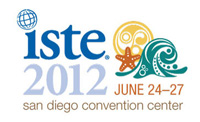How Can Federal Education Policy Promote Ed Tech? Or Should It?
A lively discussion featuring a Republican congressman from California and policy wonks from the International Society for Technology in Education centered on how federal dollars should flow to schools to improve their educational technology programs, which triggered some consternation among the school and district administrators in the audience.
They are frustrated that despite the public rhetoric in support of technology from the Obama administration, there are scant federal dollars and political will dedicated to getting federal technology funds to schools in ways that will expand and improve the use of educational technology.
“The problem is there is rhetoric and support, but there hasn’t been any specific policy examples of how to achieve that goal,” said Hilary Goldmann, ISTE’s director of governmental affairs, at the association’s annual conference, ongoing in San Diego.
With the federal grant program Enhancing Education Through Technology now defunct, groups such as ISTE are trying to get other efforts going to help states find ed-tech funding that they say they will need to meet the technology demands of common-core assessments. The new Race to the Top program for school districts supports “personalized learning”and could be a source of federal funding for technology, but there isn’t a clear connection between personalized learning and technology in that program to be confident it could be a good source.
The discussion at the ISTE conference over how to remedy federal funding needs ended up becoming a fundamental debate about who should get federal money first. At the forefront of that debate was Rep. Duncan Hunter, R-Calif., who oversees a House subcommittee for K-12 education. Hunter is a staunch opponent of the federal government administering education policy and tell schools how to use federal funds, instead favoring an approach that funnels money directly to school districts for them to determine how to use it.
“There’s no chance for technology in education if you let the House and Senate decide what it’s going to be,” Hunter told the audience. That’s similar to the rhetoric coming from Republicans looking to reauthorize the Elementary and Secondary Education Act under a greatly diminished federal role (Hunter said there’s no chance it will be reauthorized this year). But he takes that argument a step further, advocating for federal funds to even bypass statehouses, going directly from Washington to an entity like San Diego Unified School District, which is in his congressional district.
“Teachers and educators in this state don’t want it in the state’s hands,” he said, though he does support states creating their own policy. “There has been too much mismanagement.”
Hunter went on to advocate a “market-based” education system that allows districts to spend money on their own, fail on their own, and replace faculty who don’t succeed if necessary.
A skeptic in the audience questioned the viability of that approach, because it is a major reporting and infrastructure undertaking, and because school district information technology departments are getting smaller under budget cuts. One of the major limitations of No Child Left Behind, one audience member noted, was the lack of uniformity across states in how to evaluate students. Plus, giving autonomy over funds to the district puts it at the whim of principals, some of whom are not tech-savvy and may neglect it.
But Hunter remained steadfast. In response to those concerns, he said: “States could rig the game. But guess what? That’s how America works.”
After Hunter left, ISTE’s lobbyist, John Bernstein, led an interesting discussion about policy decisions that can help districts gain access to the technology. Unfortunately, the room agreed to leave that part of the discussion off-the-record. I don’t think I’m breaking any rules by saying that, in summation, there are district-level concerns that technology implementation of online assessments for the Common Core State Standards will not be possible without more federal support (similar to what my colleague Ian Quillen is hearing at ISTE as well).
Maybe in an election year those concerns will be addressed. Or maybe politicians will be reluctant to stir the pot.

